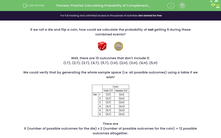If we roll a die and flip a coin, how could we calculate the probability of not getting 6 during these combined events?
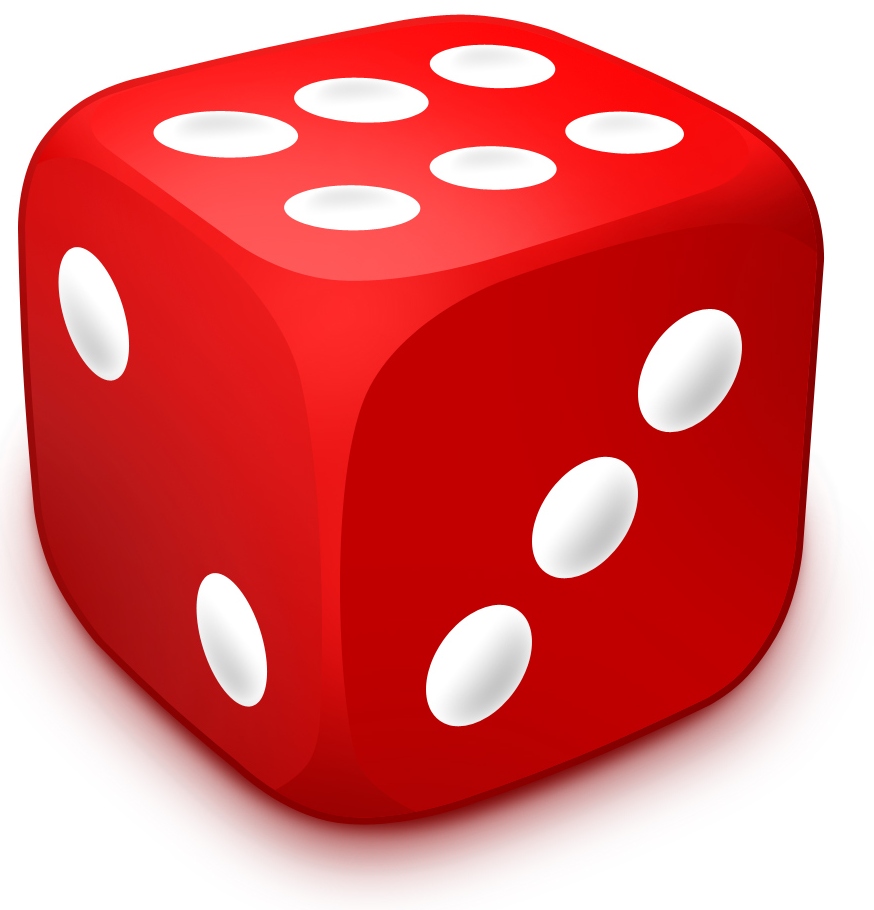
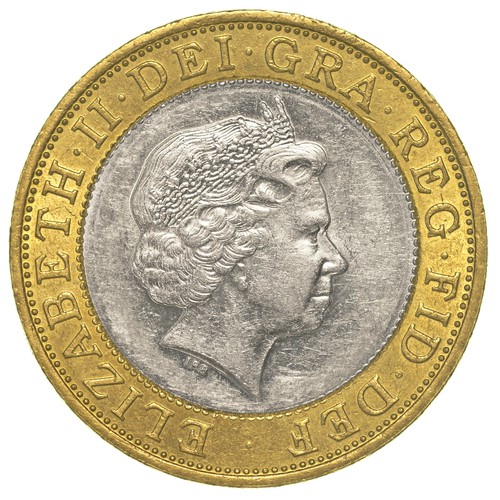
Well, there are 10 outcomes that don't include 6:
(1,T), (2,T), (3,T), (4,T), (5,T), (1,H), (2,H), (3,H), (4,H), (5,H)
We could verify that by generating the whole sample space (i.e. all possible outcomes) using a table if we wish!
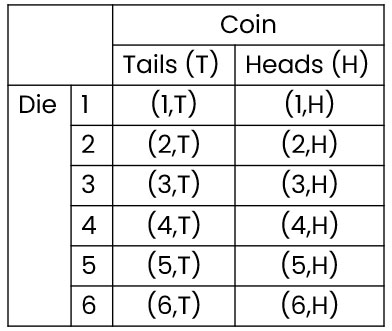
There are
6 (number of possible outcomes for the die) x 2 (number of possible outcomes for the coin) = 12 possible outcomes altogether.
So we have 12 possible outcomes altogether out of which 10 do not include a 6.
That means the probability of the die not landing on 6 is:
10/12 = 5/6
If we are not using the table and just listing the desired outcomes, then listing all 10 is a little tedious!

Could there be a faster way to do this?
Well, yes, there is!
We have only two options when it comes to getting 6: either we get 6 or we don't.
That means that there is a 100% chance of getting a 6 or not getting a 6 (there's no other option!) so the probability of getting a 6 and not getting a 6 is 1:
P (get a 6) + P (get not a 6) = 1
We can then get the probability of not getting a 6 by calculating:
P (not get a 6) = 1 - P (get a 6)
There are only two outcomes where we get a 6 (namely, (6,T) and (6,H)) out of 2 x 6 = 12 possible outcomes.
So, P (get a 6) = 2/12 = 1/6
P (not get a 6) = 1 - P (get a 6) = 1 - 1/6 = 5/6 which is exactly what we got before!
Wasn't listing the outcomes for getting a 6 so much faster?!
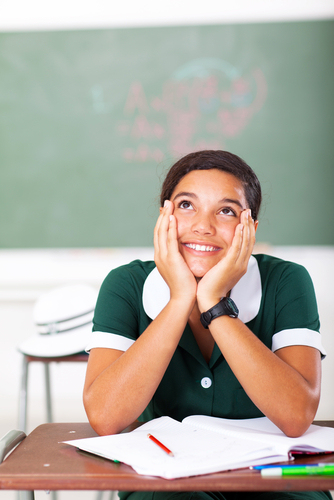
Let's have a look at one more example:
We roll two dice and add what they land on.
What is the probability of getting a total of no more than 10?


We have two ways of approaching this question:
1) We list all the possible ways of getting a total no more than 10 and then calculate the probability
(so all the pairs of numbers that would give us the sums of 1, 2, 3, 4, 5, 6, 7, 8, 9, 10)
2) We list all the possible ways of 'not getting a total above 10' i.e. getting at least 11 , and then do 1 minus that probability.
(so all the pairs of numbers that would give us the sums of 11 and 12)
Seems like the second method will have us listing way fewer combinations - so let's go with that!
There are three ways of getting a sum of 11 or 12:
5 + 6 = 11
6 + 5 = 11
6 + 6 = 12
This is out of 6 x 6 = 36 possible outcomes altogether.
So, the probability of getting at least 11 (i.e. not getting at most 10) is:
3/36 = 1/12
That means the probability of getting at most 10 is:
1 - 1/12 = 11/12
.jpg)
If we are not 100% sure that we've got all the outcomes, we can always generate the sample space to verify:
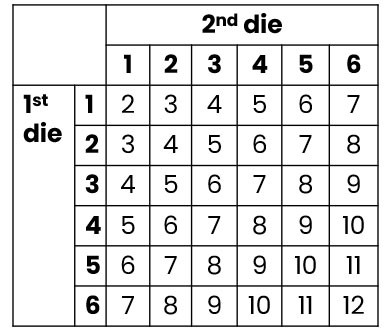
Ready to try some questions?

